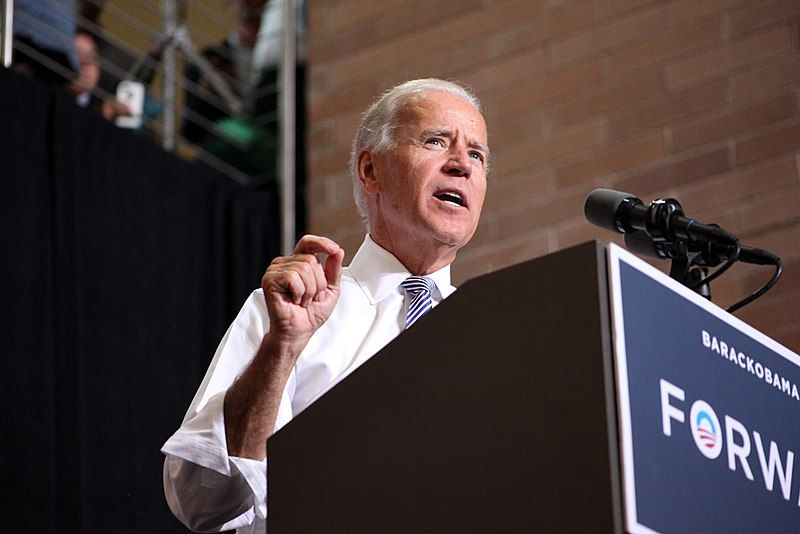The first poll for Maryland’s Democratic presidential primary shows former Vice President Joe Biden leading, but students and faculty have mixed reactions about its value, especially so early in the race.
The poll was conducted from Sept. 13-19 by Goucher College in Towson, in advance of the state’s primary, which will take place April 28. It showed Biden leading with 33 percent of the vote, Sen. Elizabeth Warren (D-Mass.) at 21 percent and Sen. Bernie Sanders (I-Vt.) at 10 percent. All other candidates were in the single digits or lower.
The poll included responses from 300 Maryland residents and had a 5.6 point margin of error. The results mirror several polls from around the country, which have shown the race tightening between Biden, Warren and Sanders. A Morning Consult poll updated Sept. 30 shows Biden at 32 percent, Warren at 21 percent and Sanders at 19 percent.
The polls illustrate a national fissure in the Democratic party: whether to opt for a candidate with policies that will push the party more left or to the center.
“Democrats in Maryland are divided over whether they want a more moderate or progressive nominee,” Mileah Kromer, the director of the Sarah T. Hughes Field Politics Center at Goucher College, said in a statement.
But with the primary still about seven months away, the poll isn’t that useful for the average voter, said Sarah Croco, a government and politics professor at this university.
[Read more: Maryland senators introduce bill to honor Richard Collins and deceased ROTC graduates]
“If I was a typical Maryland voter who’s not a political scientist … I wouldn’t really be paying attention to these polls,” she said. “I would just be like, ‘OK, our primary’s in April, given how late that is in the game, things could change.’”
One of these voters is Veronika Polushina, a sophomore atmospheric and oceanic science and computer science major. She doesn’t have a preferred candidate and will base her decision off of policy, not polling numbers, which she said can sway people before they have the chance to do their own research.
Taylor Borie, a member of Terps for Bernie, agreed with Croco. Right now, he thinks the most important polls are for the earliest primaries, such as Iowa and New Hampshire, which take place in February.
[Read more: Maryland Gov. Larry Hogan won’t run against President Trump in 2020]
As for his support for Sanders, Borie said he expects his success to continue.
“He has a massive base of people that already know him and have supported him before,” said Borie, a freshman public policy major. “Through a grassroots campaign, he’s going to be able to keep up this momentum and hopefully pick up some states and maybe take the nomination.”
For university students who support Elizabeth Warren, the poll is still a good sign, even if it’s early. Warren is in second place — like in many polls. Karylena Cruz, the president of the university’s student group for Warren supporters, thinks this is due to her receiving more national attention as the number of candidates decreases.
“Now that we’re narrowing it down by each debate, she’s getting more spotlight and time to showcase why she’s the best candidate,” said Cruz, a senior government and politics major.
Although this early polling might not be useful for the average student, Croco said it’s important to political scientists.
“Political scientists like it just because it’s more data that we can use to help future elections. We can kind of look for larger patterns across time.”
Cruz said at this stage it’s still important for students to support specific candidates so they can be more informed on their platforms.
“I know it’s early … but I think it’s important that we look forward to organizing on campus and that it’s not too early to start organizing on campus,” she said.



